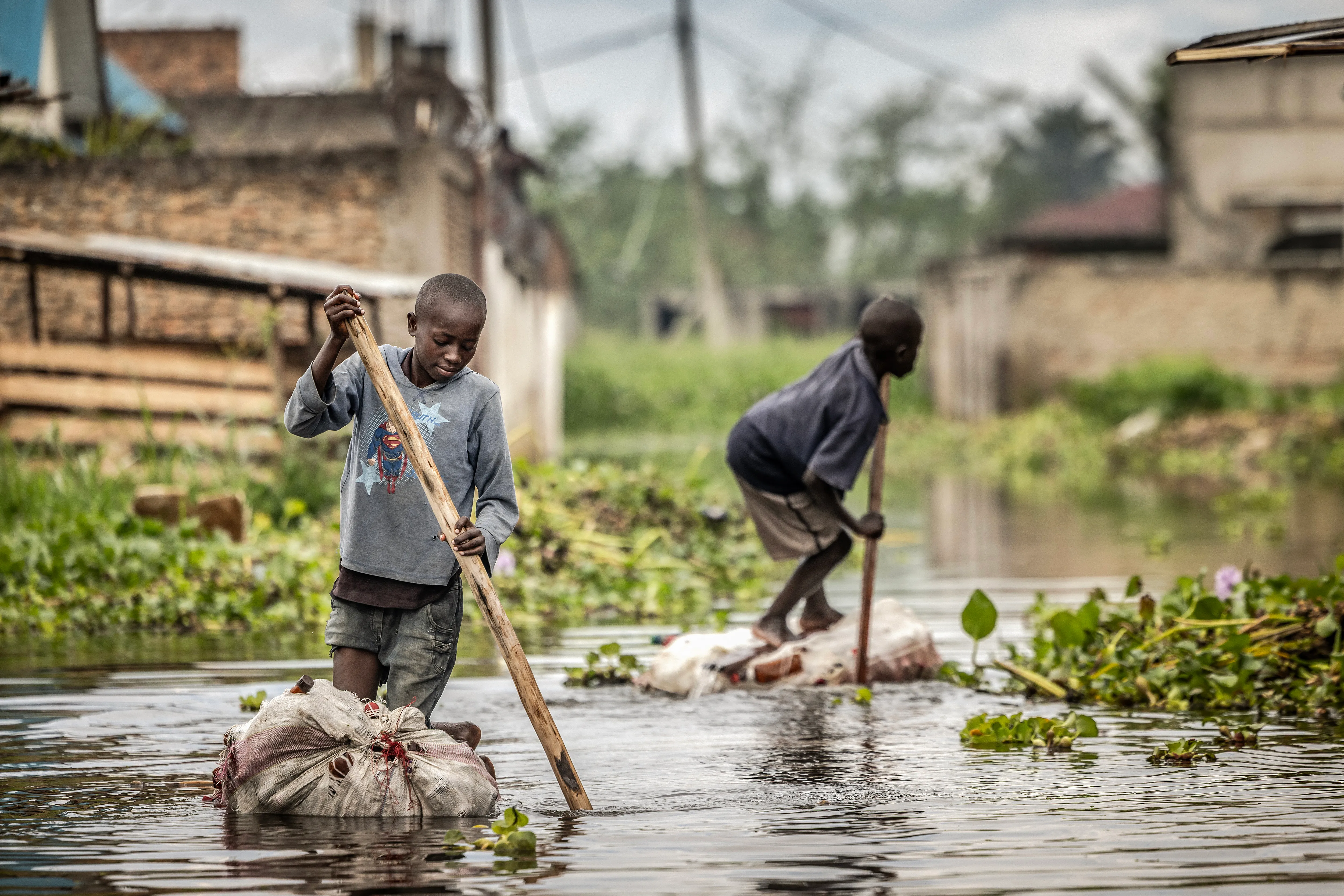In Gatumba, Burundi, Asha navigates her flooded home wearing rubber boots—a daily necessity for residents along Lake Tanganyika's swelling shores. The mother of four describes years of inundation that have erased any semblance of normalcy. "Water invades our lives constantly," she states, echoing the distress of thousands facing climate-driven displacement in one of Earth's most vulnerable nations.
Africa's second-largest freshwater body, Lake Tanganyika, has exceeded its historical water levels since 2018 due to escalating surface temperatures. Bernard Sindayihebura, an environmental specialist at the University of Burundi, confirms: "Global warming intensifies rainfall and disrupts natural cycles. The overflowing lake now blocks the Ruzizi River, creating permanent floods across northern communities."
Submerged Communities, Shattered Lives
Gatumba's once-prosperous architecture now stands half-drowned, with residents constructing tents atop roofs and children floating through streets on improvised plastic-bottle rafts. The crisis peaked in 2023 when waist-high waters forced mass evacuations. Jean-Marie Niyonkuru, a local leader, reports dire health consequences: "Sewage mingles with floodwaters, spreading cholera and diarrhoea among children. We lack resources to combat this."
Burundi's extreme poverty exacerbates the disaster. Ranked 187th of 193 nations on the UN Human Development Index, it lacks infrastructure to withstand environmental shocks. The UN identifies it among the 20 countries most threatened by climate change—a reality underscored when 2024's El Niño-enhanced rains displaced nearly 100,000 people. Official death tolls remain unconfirmed, but survivors recount harrowing escapes.
Displacement Without End
Ariella, a mother of seven sheltering in Gateri camp, lost everything when floods crushed her home in 2020. "The currents nearly took my infant," she recalls. After relocating twice, waters found her again. "What future exists for us?" she asks—a question haunting 38,000 internally displaced Burundians.
International aid efforts are faltering. Save the Children warns that critical programs face collapse after U.S. funding suspensions eliminated 83% of humanitarian projects. As the former provider of 40% global climate aid, America's withdrawal leaves a void no nation has filled. "We're witnessing preventable suffering," states a relief coordinator anonymously. "Waterborne diseases spread while support evaporates."
Scientific Warnings, Global Implications
Researchers emphasize Lake Tanganyika's role as a climate indicator. Its warming waters—now 1-2°C higher than historical averages—displace fish stocks that feed millions regionally. Meanwhile, sedimentary analysis reveals unprecedented erosion from intensified rainfall, threatening long-term ecological stability.
With seasonal forecasts predicting continued above-average precipitation, Burundi's crisis illuminates a brutal inequity: those least responsible for global emissions endure its severest consequences. As Asha wades through her living room, her plea extends beyond Gatumba: "Will the world remember we exist?"








Comments (0)
Leave a Comment
Be the first to comment on this article!